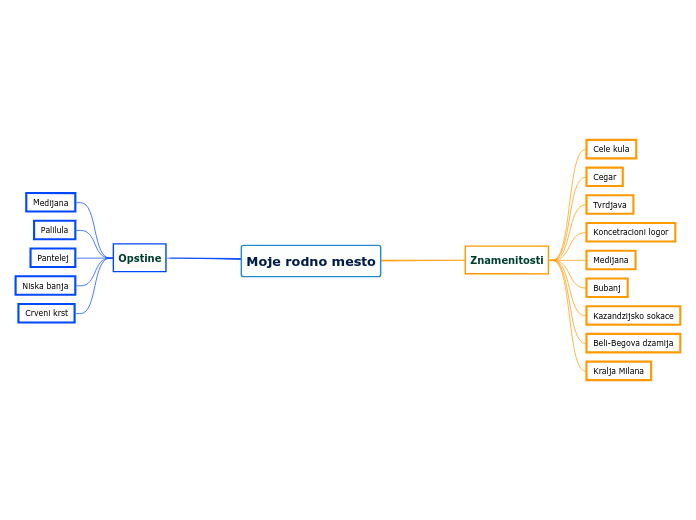RENESANCE
The part of speech is a category to which a word is assigned according to its syntactic functions. In English the main parts of speech are noun, pronoun, adjective, determiner, verb, adverb, preposition, conjunction, and interjection.
Francie
A conjunction is a word like 'if' 'but' or 'and' which is used to connect sentences or clauses together.
Coordinating conjunctions always connect phrases, words, and clauses. They are: for, and, nor, but, or, yet, so.
Francois Rabelais
Gargantua a Pantagruel
Francois Villon
Velký testament
Malý testament
Anglie
A preposition is one of the most exciting parts of grammar. A preposition is used to describe the location of something in relation to something else.
až v 16.st.
Compound preposition consists of two or more words.
on behalf of, according to, in front of, from across, etc.
When a preposition consists of one word it is called single or simple preposition.
Geoffrey Chaucer
Canteburské povídky
William Shakespeare
Romeo a Julie
zamilují se do sebe a chtějí se vzít ale jejich rodiny s tím nesouhlasí, tak se vezmou natajno a kočí to tím že Julie vypije jakýsi nápoj, který ji uspí a Romeo si bude myslet že je mrtvá tak vypije jed aby umřel s ní, ale Julie se probudí a uvidí ho mrtvého a tak se probodne Romeovou dýkou
Romeo=Montek 17let
Julie=Kapulet 14let
dva významné rody Kapuleti a Montekové, které se vzájemně němeli rádi
Hamlet
Španělsko
An interjection is used to express emotion in a sentence.
Think of other interjections!
16.-17.st. nazýváme zlatý věk španělského dramatu a literatury
ovlivněno arabským uměním
Miguel De Cervantes
Důmyslný rytíř don Quijote de la Mancha
A pronoun is a word that can be used in place of a noun, typically after the noun itself has already been stated.
MALÍŘI
Reciprocal pronouns are used for actions or feelings that are reciprocated. The reciprocal pronouns are each other and one another.
Leonardo Da Vinci
Mona Lisa
Demonstrative pronouns are used to demonstrate (or indicate). This, that, these, and those are all demonstrative pronouns.
Niccolo Machiavelli
Vladař
Giovanni Boccaccio
Dekameron
Francesco Petrarca
Subtopic
Dante Alighieri
Božská komedie
vznik
An adjective is a word that's used to describe a specific noun and to provide more detail to the listener.
14-16st.
Superlative adjectives demonstrate a higher level of comparison between entities.
She is the prettiest princess.
Itálie
Expresses a comparison between two entities or groups of entities in quality or degree.
He is taller than she is.
Portugalsko
A noun is defined as a person, place, thing or idea. Proper nouns always begin with a capital letter. Common nouns, which are general words, such as 'cars,' are not capitalized.
Countable nouns are nouns that can be counted, even if the number might be extraordinarily high.
Uncountable nouns are nouns that come in a state or quantity which is impossible to count; liquids are uncountable, as are things which act
like liquids.
Luís de Camöes
Lusovci
oblíbené rytířské a pastýřské romány
Proper nouns are the names of specific people or places. They should always begin with a capital letter.
Mary, Paris
Čechy
A verb is an action word or 'doing' word that signifies movement in some way.
veleslavínská čestina se stala nejvyšším knížním ideálem v době národního obrození, díky Danielovi Adamovi z Veleslavína
KNIHTISK
An auxiliary verb helps the main (full) verb and is also called a 'helping verb.' With auxiliary verbs, you can write sentences in different tenses, moods, or voices.
poté Bible kralická
první Trojanská kronika
PAMÁTKY
A participle is a verb form that can be used as an adjective or to create a verb tense. There are two types of participles: Present participle (ending -ing) and Past participle (usually ending -ed, -d, -t, -en, or -n).
Města
Telč
Litomyšl
Zámky
Opočno
Velké Losiny
Červená Lhota
pravopis nazývající se bratrský
renesance se tu prosazovala pomaleji kvůli husitským válkám
A modal is a type of auxiliary (helping) verb that is used to express: ability, possibility, permission or obligation. The main modal verbs in the English language are: can, could, may, might, must, shall, should, will, would.
Create sentences
I might go to the park if I get my homework done.
AUTOŘI
A linking verb connects the subject with a word that gives information about the subject, such as a condition or relationship.
Václav Vratislav z Mitrovic
Příhody
Kryštof Harant z Polžic a Bezdružic
Cesta z Království českého do Benátek, odtud po moři do země Svaté, země Judské a dále až do Egypta
Mikuláš Dačický z Heslova
Prostopravda
Václav Hájek z Libočan
Kronika česká









